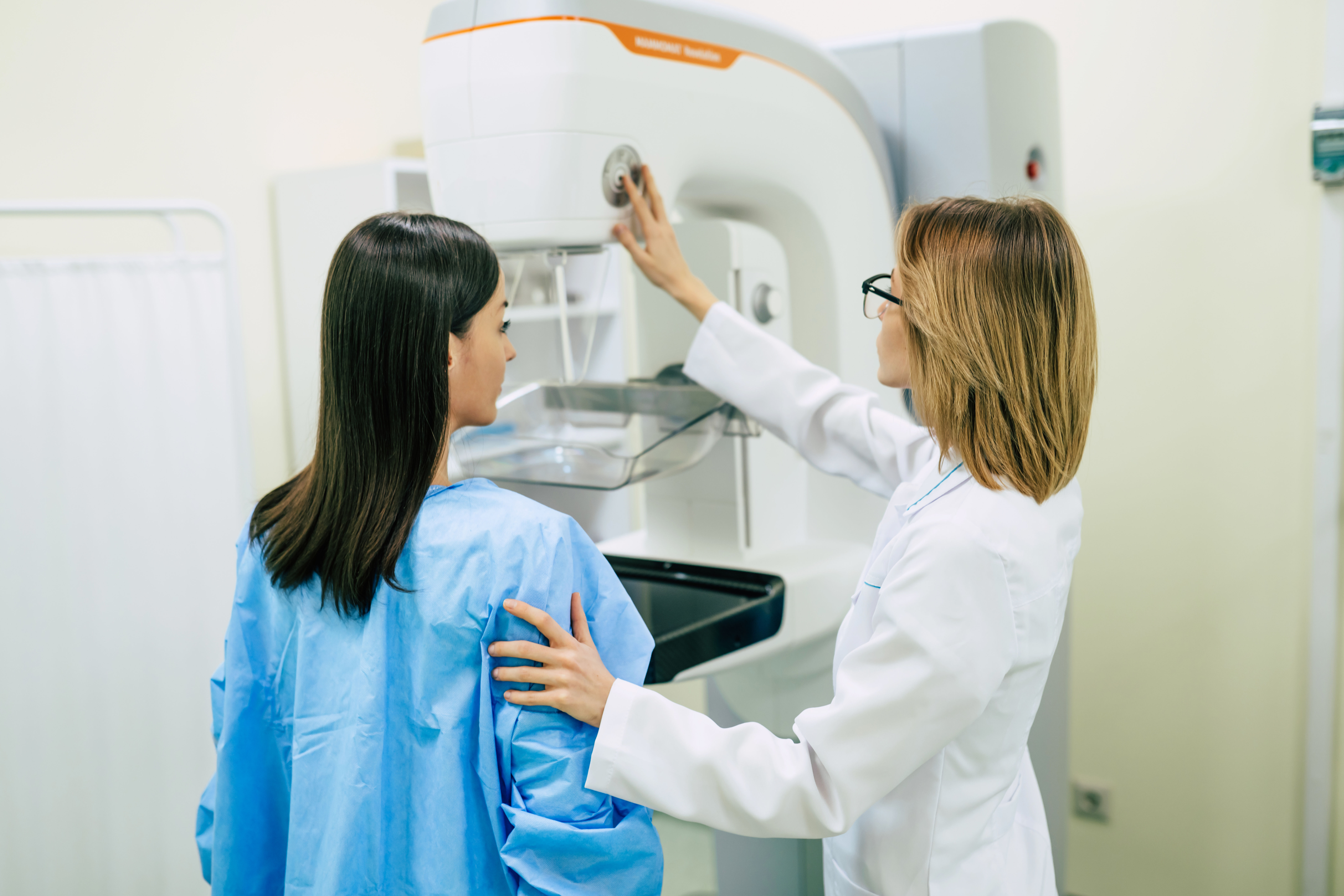This content is provided by MedStar Washington Hospital Center.
Endometrial cancer, also known as uterine cancer, is the most diagnosed gynecologic cancer in the U.S. The National Cancer Institute estimated there will be almost 68,000 new cases of endometrial cancer diagnosis in 2024, and it will cause more than 13,000 deaths.
Currently, there are few successful treatment options when endometrial cancer returns after initial treatment. Now, with the use of state-of-the-art medications, MedStar Washington Hospital Center is participating in two clinical trials that could reveal new treatments for patients with recurrent endometrial cancer.
Dr. Ebony Hoskins, a board-certified gynecologic oncologist at MedStar Washington Hospital Center, said patients with access to clinical trials can have better chances of survival.
One trial looks at immunotherapy plus other medications personalized to the patient’s tumor. Patients take part in genetic screening of the cancer and doctors look for biomarkers existing within the cells of the tumors to see if it is likely to respond to a specific, targeted treatment.
This kind of personalized treatment is often called molecular profiling or biomarker testing and is recommended for all patients with endometrial cancer because it allows for targeted treatments to slow tumor growth.
Immunotherapy uses the body’s own natural defenses to kill cancer cells.
Although there are many approaches to it, all methods involve using the patient’s immune system to identify and fight the cancer.
Another study involves the safety, effectiveness, and tolerability of an antibody-drug conjugate (ADC). Previous studies have shown ADCs to be effective in treating tumors in patients with breast cancer.
“There’s all kinds of money and resources in breast cancer, and that’s why survival rates are improved,” Dr. Hoskins added. “So, some of those similar drug molecules are now being tested in endometrial cancer.”
ADCs combine potent anti-cancer drugs with monoclonal antibodies targeted to antigens on the surface of tumors.
According to the National Library of Medicine, cases of endometrial cancer have been increasing more rapidly among Black women than other ethnic groups in the country. Black women also face a higher mortality rate from endometrial cancer as they are twice as likely as women of other groups to die from it.
Despite the data, Black and Hispanic patients have been underrepresented in landmark clinical trials. Dr. Hoskins said these statistics are part of why she supports increased access to trials.
She said studies allow providers to answer if there are other “cutting-edge” treatments they can offer patients to improve symptoms and survival rates.
“Collectively, we need to know this information – particularly in women of color – for trial enrollment because that patient population has been significantly less than what the actual general population is,” she said.
Improved participation in oncology clinical trials among underrepresented populations can further validate study outcomes and reduce oncologic care disparity, Dr. Hoskins added.
To advance clinical trial engagement, Dr. Hoskins said medical professionals should recognize the historical vulnerability of Black patients and educate them on improved government-mandated transparency of trials.
“We need engagement by cancer centers to support minority recruitment,” Dr. Hoskin added. This includes assisting patients with screening and enrolling and increasing the awareness of trials.
Clinical trials in local communities should also be accessible and providers should recognize that transportation can be a barrier.
New guidelines from the National Comprehensive Cancer Network (NCCN) found that combining chemotherapy with immunotherapy can help patients with endometrial cancer live longer without their cancer progressing.
“So as of the spring, we’ve been incorporating immunotherapy with chemotherapy in patients with advanced endometrial cancer,” Dr. Hoskins said.
Endometrial cancer begins in the lining of the uterus and the most common symptom is vaginal discharge or bleeding unrelated to the menstrual cycle. Other symptoms include abnormal findings on imaging such as pelvic ultrasound, pelvis pain, and vaginal bleeding after menopause.
The sooner the cancer is identified, the better the chances of survival. When discovered early enough, endometrial cancer is treatable with surgery.
Most treatments include surgical removal of the uterus, ovaries and fallopian tubes. For advanced endometrial cancer or aggressive tumor types, radiation therapy and/or chemotherapy are sometimes necessary to kill any remaining cancer cells.
“We’re just trying to make sure that we are offering standard care that is approved or provided – not just locally, but nationally – with our hope of improving survival.”
Read more about endometrial cancer studies and treatments in a post by Dr. Ebony Hoskins on the MedStar Washington Hospital Center website.







